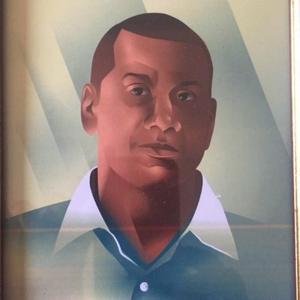
In mid-2011, along with the bills and magazines in my mailbox, I discovered that someone had posted me the first real letter I’d received in about a decade. It was from Canada and bore a stamp featuring a polar bear. It turned out to have been from Toni Pinto, who led a band at the Ambassador Hotel on Churchgate Street (now Veer Nariman Road) for 16 years, starting in 1958. Pinto wanted to know when Taj Mahal Foxtrot would be on the shelves and took the opportunity to enclose a clipping about himself.
The pianist has divided his time between Bombay and Canada for several years and recently took part in that country’s largest talent contest for people older than 65. He beat out all the other contestants. He won the Senior Star Trophy and a spot on a TV programme.
It isn’t the first award Pinto has won. In 1966, he was awarded the Franz Marques trophy for best original composition at the Sound of Surprise concert organised by the Bombay Musicians Association. His tune was called Forever True. He composed it all in a flurry one night as he was returning home from Bandra in a cab. He scribbled it down on a matchbook cover, with only the light from the meter to see in.
Reporting on the Sound of Surprise concert in a publication that I haven’t been able to identify, a columnist who went by the name of “Downbeat” said, “Taking the stage just before the interval, Toni Pinto’s well-set sextet enraptured the crown by its superb rendering of beautifully arranged pieces. The best among many food numbers that Toni and his group played that morning was Forever True.” (Listen below)
The concert, at the Birla Matushri hall, also caught the attention of a writer named Adi Desai in a publication that appears to have been the Onlooker. “What can one criticise about personable and extremely talented young men who make you clap your hands and tap your feet with joyous abandon?” Desai asked. Among the contestants was the drummer Leslie Godinho, performing compositions that mixed jazz with Indian idioms. His group included Hindustani musicians he worked with in the Hindi film studios, such as the sitar player JV Acharya.
But Adi Desai reserved his highest praise for Toni Pinto’s group, which had Clement Furtado on bass, Tony Fernandes on drums, Norman Mobsby on tenor, Johnnie Rodricks on alto and clarinet and George Fernandes on trumpet. “Here was a bunch of creative musicians as good as their colleagues on the continent – and probably better – who can really blow without any signpost and jump out of their instruments with a flow of carefree, truth speaking, right-from-the-heart music,” he declared. “Toni is in his own class, a musician without peer and seems to get better every time I hear him.”
Pinto’s contemporaries remember him as the most technically accomplished jazz musician of the 1960s. He could read music perfectly, so he was much in demand for visiting cabaret acts. He worked hard on his music for many years: he could play the violin and drums at the age of 5 and turned pro at 16, while still in college at St Xavier’s, where he studied economics and politics. In 1969, he toured Europe and the Middle East, as he signed up for the band on the cruise ship Uganda. Later, after his stint at the Ambassador, he would play in the Gulf for some years. The two tunes that accompany this piece were recorded in 1971.

Pinto’s letter to me made it clear that he hadn’t lost his impish sense of humour. “I’m sure it must be pouring cats and dogs, from what I hear,” he wrote. “Over here, it’s summer, so I have to keep playing Summertime, but the living ain’t easy, buddy, because its hot.” Just like the performances for which Bombay remembers him.





















Write a comment ...